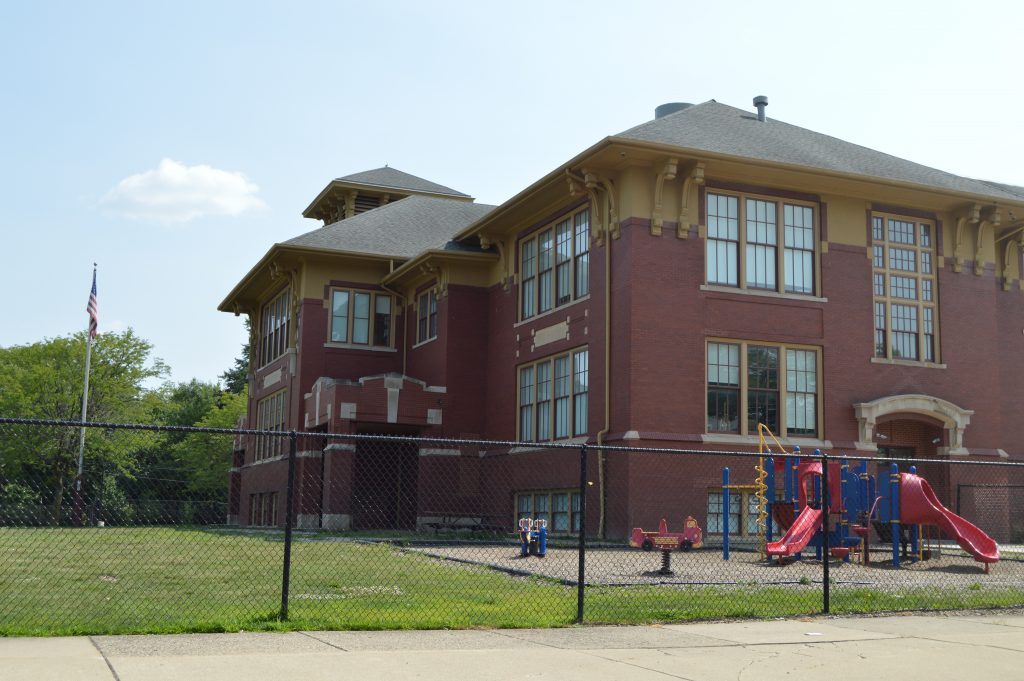Michigan’s Education Landscape: How Did We Get Here?
Two people at the center of education policy in recent decades in Michigan weigh in on some of the biggest changes.


Over the past three decades, education and school reform has been a heavily debated issue. WDET’s “Policy Meets the People” takes a deeper look at how how policies created at the top — with the governor, lawmakers, and the state board of education — end up impacting schools and students.
Few people, if any, have had more behind-the-scenes influence on Michigan education policy over the last 30 years than Lansing-based attorney Richard McLellan. He serves as a top adviser to Gov. John Engler, was an architect of Michigan’s charter schools law in 1993, and has been an education adviser to Gov. Rick Snyder.
McLellan joins Detroit Today with Stephen Henderson to talk about the past, present and future of education in Michigan.
Henderson also speaks with former president of the State Board of Education John Austin.
Here’s what they have to say about are some of the most significant changes to Michigan’s education system over the past three decades.
1993 — School Choice (Charter Schools) Law:
The Michigan Legislature approved the state’s charter school law, which was drafted in part by Richard McLellan.
Austin: “Charters were created by Al Shanker of the American Federation of Teachers to liberate educators…But our charter law that was passed was very free-booting, and let for-profit operators be authorized to run schools.”
McLellan: “We’ve ended up with a moderate amount of success with some (charter) schools that are exceptional ones, but clearly most of the schools are pretty ordinary….It did create some competition. There’s no doubt that public school districts suddenly had to treat their students as customers, not inmates.”
Here are some of the initiatives McLellan helped craft, along with his personal letter grades he describes as his own “quick, off the cuff, grading of a each initiative.”
- Charter schools B-
- Interdistrict choice B
- Dual enrollment A-
- Middle colleges A
- Online courses ?
- Cyberschools D
- Eliminate “single site” C
1994 — Proposal A:
The proposal overhauled how Michigan schools are funded and raised the state sales tax and tobacco tax to help fund schools. It represented the “the nation’s most dramatic shift in a century in the way public schools are financed,” according to the New York Times.
In that article, Engler said:
“It is a huge vote…The property tax had been a terrible problem in the state because of the relentless increases for schools. We were approaching an educational meltdown, and it was the root of the inequities in the per pupil spending among districts.”
McLellan: “It was a massive change in the tax law and education structuring.”
2011/2012 — New Era of Emergency Managers and State Oversight:
After Gov. Rick Snyder became governor, he signed Public Act 4, which made it easier for the state to take over failing schools and gave emergency managers sweeping powers over those districts. Voters struck it down by referendum in 2012. But a month later, Republicans in the state Legislature approved a new, altered emergency manager law, which Snyder signed into law. Among the changes was a provision that made it immune to voter referendum.
McLellan: “I dont know what else you would do. You have to make some effort to fix it. And we did. I think in some respects, emergency managers worked, and in some cases, they did not.” *
*When asked if he could provide an example of an emergency manager success in a Michigan school district, McLellan said “I can’t.”
Advice for the next governor of Michigan:
McLellan:
1) Eliminate the State Board of Education as a separate body.
2) Be careful what you promise regarding education policy.
*This would require a state constitutional amendment which would need to be approved by voters.
Austin:
1) Support teachers.
2) Change the funding model.
3) Manage schools for quality — no more ‘anything goes’ policy on charters.
To hear the full conversations with McLellan and Austin, click the audio player above.
